Disclosure: Meeple Mountain received a free copy of this product in exchange for an honest, unbiased review. This review is not intended to be an endorsement.
If the person who designed the best two-player-only game in modern tabletop history is involved, count me in.
Antoine Bauza is the designer of many well-regarded games in our industry, including 7 Wonders and Hanabi, a game that is still very popular with both hardcore gamers and more casual hobbyists in my circles nearly 15 years after its initial release.
But 7 Wonders Duel (a co-design between Bauza and Bruno Cathala) is the only dedicated two-player tabletop hobby game I would call a perfect design. Each time I play it, I’m shocked by how well it all works—it’s approachable, deep, clean, and fast.
When the game Tokaido Duo (2022, Funforge) was offered during a meeting at last year’s SPIEL event, I jumped at the chance to try Tokaido in a two-player-only format. Bauza designed Tokaido, and now he’s designed a two-player-only version, I thought. Could this be better than what 7 Wonders Duel did for that property’s base game?
The answer? No. Still, that leaves Tokaido Duo in a great spot—fun, not legendary.
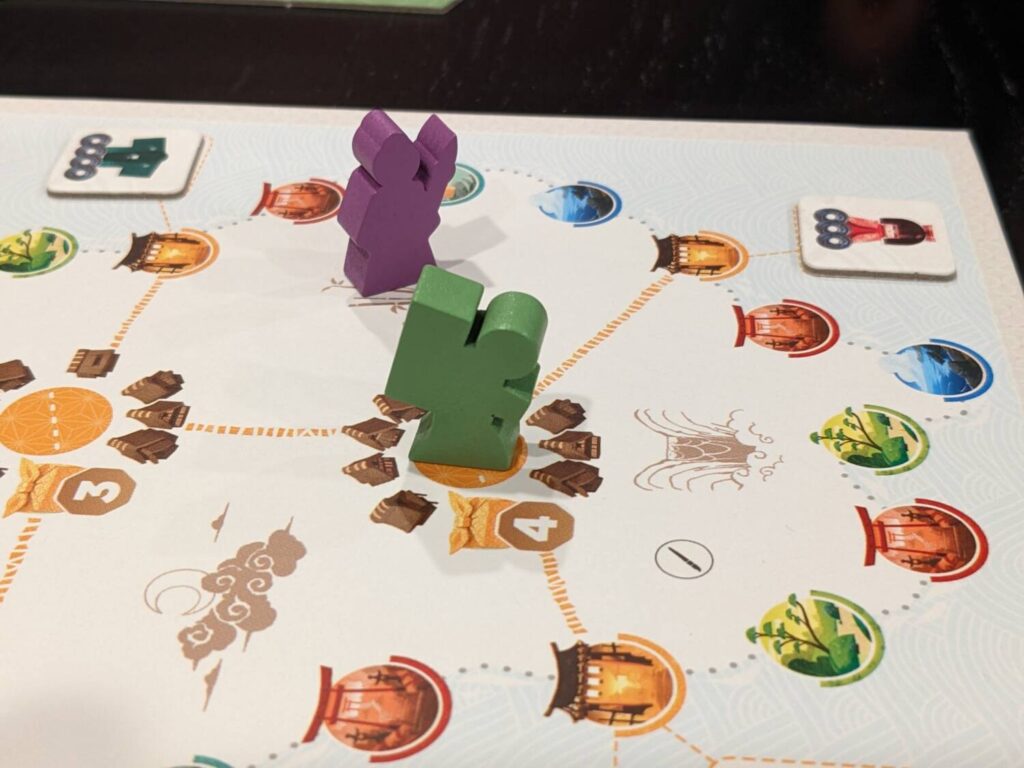
Making a Gentle Game…Gentler?
I have only played Tokaido once, and after re-reading our earlier review of the base game, I agree with most of our content. Tokaido is a game, for the sake of being called a game. But it’s really a peaceful journey across a single path, stopping at points along the way to do things like visit hot springs and paint paintings. I remember playing it and thinking
OK, nice, peaceful. What are we playing next?
And after that first play, I never considered revisiting Tokaido again. Tokaido Duo’s tagline in BGG is almost the same idea as the base game: “Choose where to walk to see the best things.”
It’s the word “choose” where I take issue. We’ll come back to this.
Tokaido Duo is a two-player-only game featuring simple movement, extraordinarily-light traversal rules and a handsome production. In plays with my wife and then with my daughter, none of the games took longer than 30 minutes, and that included the teach for my first games with each opponent.
Experiences with my wife led to each of us saying that the game was delightful, a word that I don’t regularly utter in my day-to-day speech patterns. Tokaido Duo might be the most “wine-and-cheese” game in our collection, because the rules overhead is so low and the turns play out in a semi-programming environment.
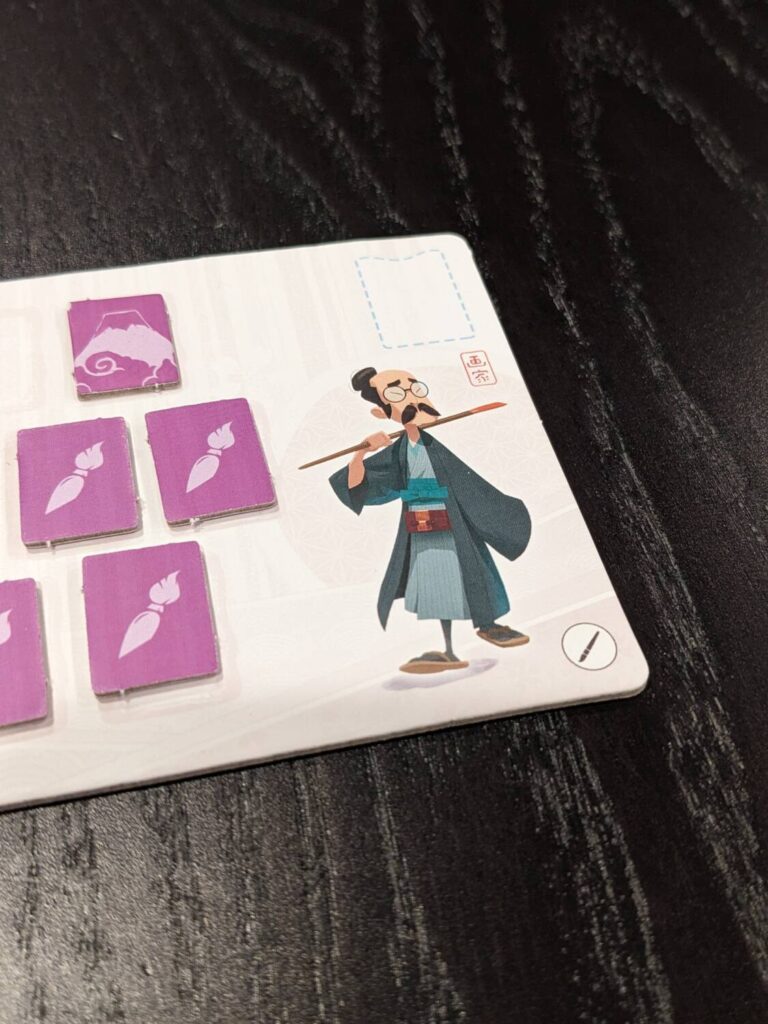
I’ll explain. Each player controls three meeples (we use that word a lot around here): a Pilgrim, an Artist, and a Merchant. These meeples align with three dice, one for each character type. The active player rolls these three dice, then selects one of them to activate a character. Then the other player selects from the remaining two dice, activating that character. Then the person who began the turn takes the remaining die and activates their final meeple.
The Merchant is the only meeple of the three that involves any work. With room for storing five Wares on its character sheet, the Merchant strolls around the game’s map of Shikoku (the smallest island in Japan) visiting towns. The mountain towns at the center of the board allow a player to draw a number of Ware tokens from the bag equal to the number printed next to that mountain town. Later, the Merchant can visit coastal towns to sell Wares for a price printed on a randomly-placed tile for cash.
Every time a player has 10+ coins, they trade those coins in for a gold slab. When one player has six of those slabs, the game is over.
The Artist has ten face-down paintings on its meeple mat when play begins. When someone selects the Artist die, they move the Artist a number of spaces matching the die face, then have two options: paint, which flips paintings face-up to become available as donations, or gift a painting. When gifting, the Artist gives the upper-left-most painting from their mat to the space they land on, removing it from play. That will score a number of points during the endgame equal to the highest amount revealed by gifting those paintings. If a player ever donates their 10th painting, it’s game over.
The third meeple is the Pilgrim, which reminded me most of my time with the base game. The Pilgrim is simple: based on the die roll, move your Pilgrim in a clockwise direction around the island spaces. When the Pilgrim lands on a red Temple space, or a green Garden space, a small peg is moved forward on its matching track that serves as a multiplier for more end-game points. If a peg ever hits the end of either the Temple or the Garden track, that will trigger the end of the game.
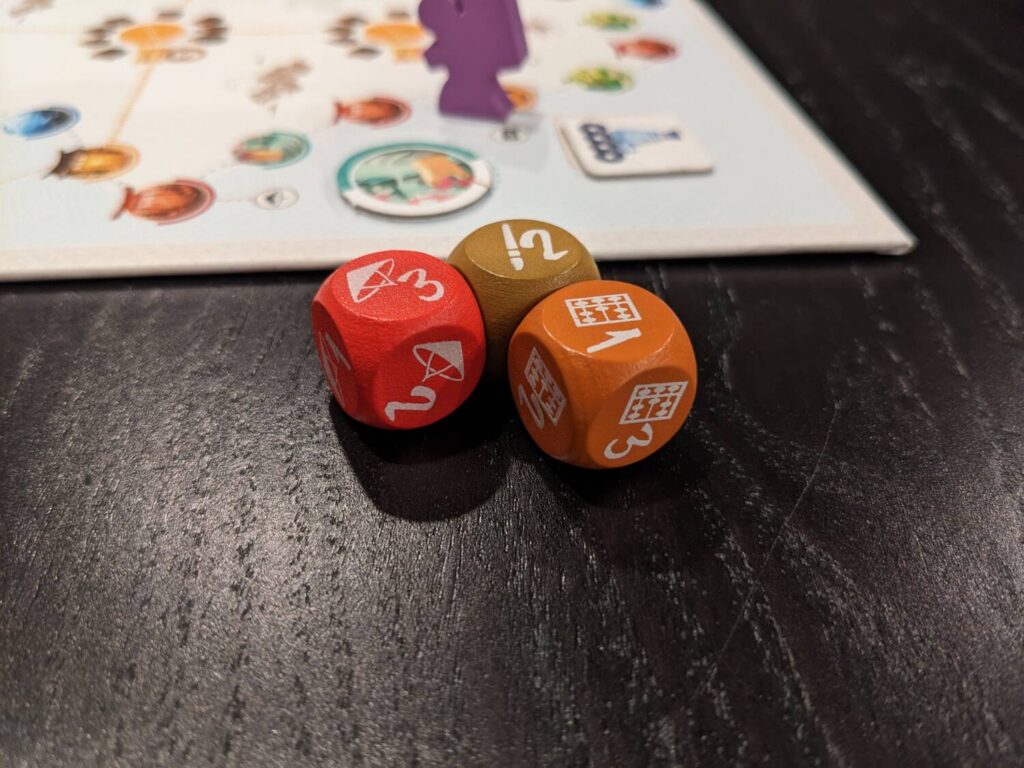
Let’s Talk About the Word “Choose”
“I don’t know, Daddy,” began my daughter during our discussion at the end of our first play. “It looks really good [on the table] but some of the turns aren’t very interesting.”
I asked for more explanation, and I was surprised how closely our thoughts aligned. Tokaido Duo is often neither good nor bad. Instead, it’s inoffensive. Turns are over, lickety-split. Someone rolls the dice, someone takes a die, the non-active player usually has an easy time picking from the remaining two options, then the active player takes the last one and executes that meeple’s action.
My daughter’s complaint is the one I share, as it relates to the Pilgrim. Often, it is not really a choice—move forward, gain rewards. And because the Pilgrim usually can’t do anything but move forward the full amount of the rolled die value, and if another Pilgrim or Merchant is on that space, the active Pilgrim just keeps moving forward until they can land on an empty space.
Thrilling, the Pilgrim is not.
The Artist and Merchant offer more choices, but those choices are usually straightforward. If you have a lot of wares of a single type, you are making a beeline to a coastal town where those can be sold for the most money. The scoring tracks are nearly identical with these two meeples, maxing out at about 40 points. (The track on the Pilgrim board also maxes out at about 40 points, but it takes a little bit longer to reach the end of that one.)
My findings: the amount of real choice in Tokaido Duo is limited. That’s not a bad thing in the overall scheme of things, particularly when I want to play a game with my wife that comes at the end of a long day for one or both of us. (We do have kids and jobs, after all.) But for those looking for anything resembling “meat on the bone”, Tokaido Duo is not your game.
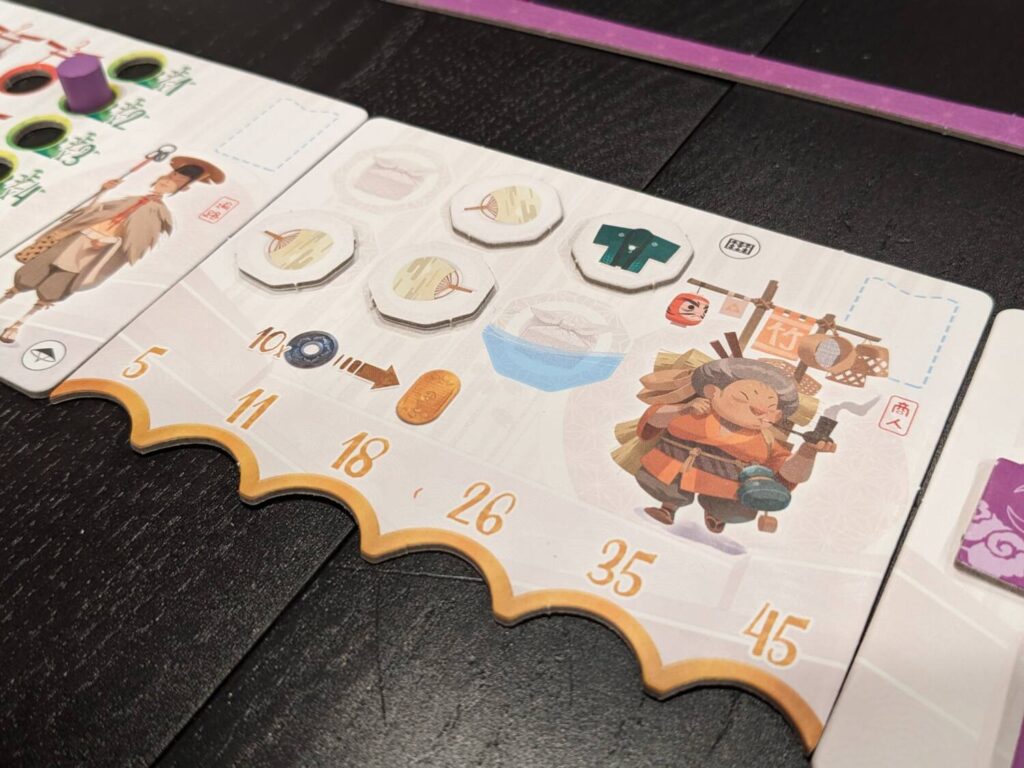
Delightful
Tokaido Duo is recommended for couples, friends or roommates that like to occasionally play a game where everyone is a winner, even in defeat.
The Funforge production here is beautiful, with just enough character in a tidy box to make the game really shine. The rules are well written, and the meeples are very distinct—I love the Merchant meeples, with their little sack on the back, making it look like it is really difficult work to move from coastal to mountain towns and back again.
This isn’t in the top tier of Bauza’s other work, but that still leaves us with a good game that is a nice diversion from many of the rules-heavy behemoths I table at my home. If anything could be the opposite of my 14 plays of Voidfall, Tokaido Duo is it. Assuming you have a partner in crime that can commit to some plays, give Tokaido Duo a look.


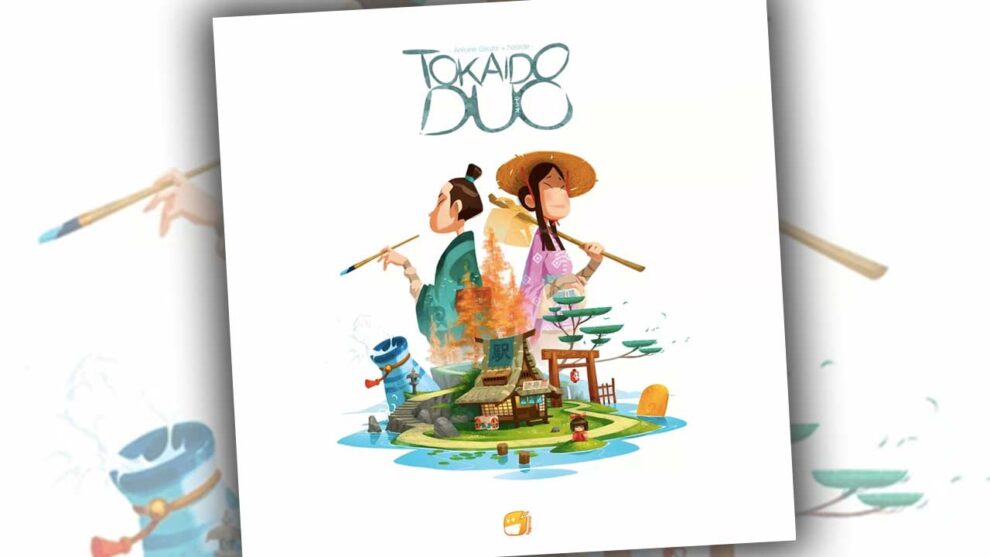


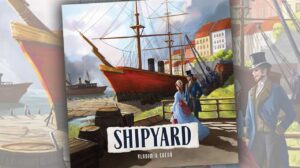

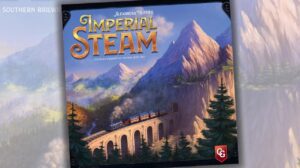




I love Tokaido. It is a family-and-friend favorite around here. Like you, I was hoping for something like the 7-Wonders -> 7-Wonders Duel type of treatment. Sorry to hear it was lacking. 🙁
I will probably check it out at some point anyway. Who knows? Maybe it will tick with us.